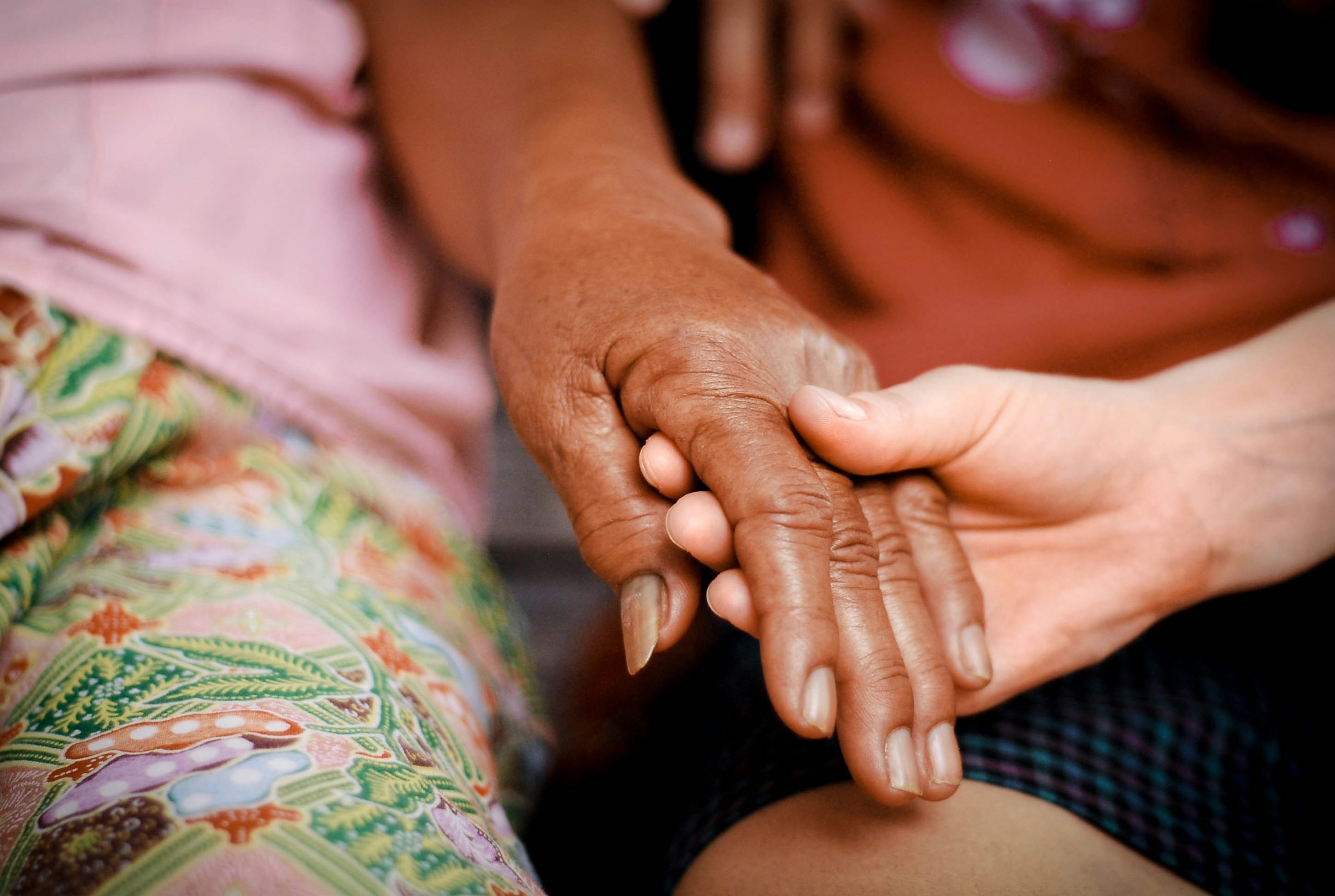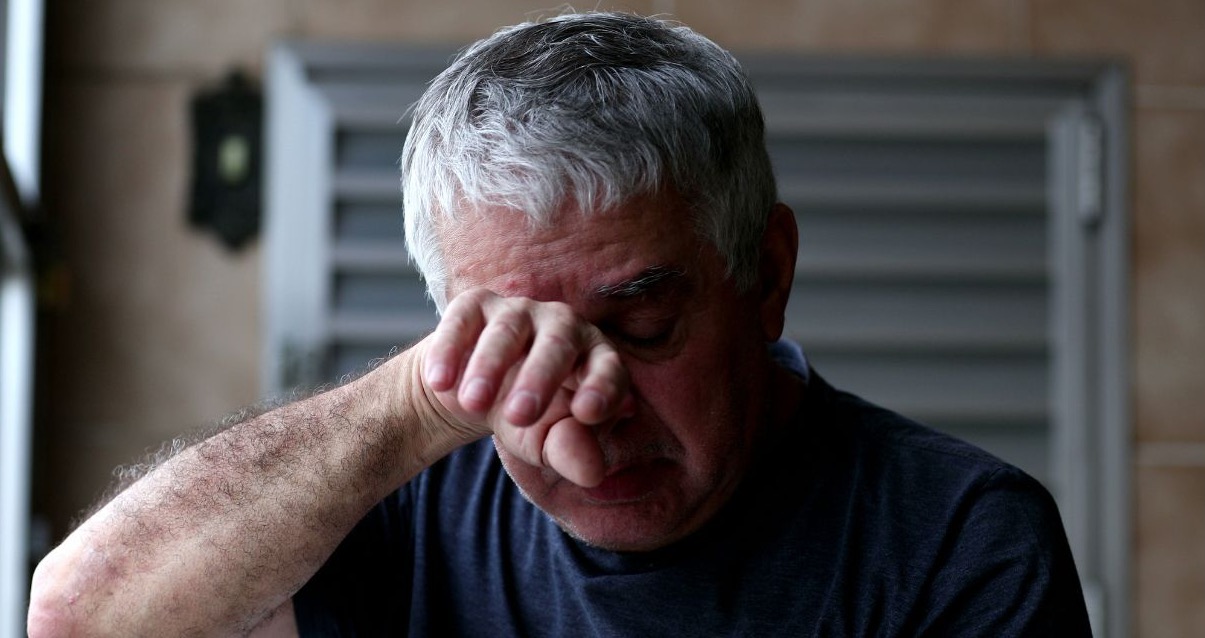Grief isn’t supposed to be this confusing.
We expect it to come after a loss—after the goodbye, after the funeral, after the casseroles.
But for dementia caregivers, grief doesn’t wait its turn. It shows up early. It lingers. It shapeshifts. And sometimes, it doesn’t even feel like grief until we’re knee-deep in it.
Welcome to the world of ambiguous grief.
What is ambiguous grief?
Ambiguous grief is the kind of grief that doesn’t follow the rules.
It shows up when someone you love is still alive, but something essential about them has changed—or is slipping away.
There are actually two types of ambiguous grief:
Physical absence with psychological presence – like when a loved one is serving in the military, lives in another location, missing or incarcerated. Their body isn’t here, but they’re alive in your thoughts, hopes, and what-ifs.
Psychological absence with physical presence – like in dementia. Your person is right in front of you, breathing, eating, maybe even smiling…
but the them you knew? The one who remembered your birthday or always made you laugh or held your secrets? That version of them might feel… gone.

Dementia caregiving often brings this second kind—the grief of watching someone become unfamiliar even while you’re still brushing their hair or helping them with breakfast. It’s the mental, emotional kind of loss that doesn’t get a neat label or a sympathy card.
Why ambiguous grief hits so hard
Here’s the kicker: ambiguous grief doesn’t follow the “rules” of regular grief.
You don’t get a clear timeline. There’s no funeral to mark the moment something shifted.
You might feel like you’re constantly grieving little losses—
each time you notice a small change, each misplaced name, each moment you remember that life is different now.
It’s a slow, silent heartbreak.
And because society doesn’t always recognize it as grief, you might feel guilty for even calling it that.
You might tell yourself:
- “At least they’re still alive. I should be grateful.”
- “I shouldn’t be this sad yet.”
- “I just have to be strong.”
But you are grieving. And your sadness deserves space.
The pressure to hold it all together
If you’re a dementia caregiver, you’ve probably become a master of holding it all in:
- Smiling while your heart breaks.
- Making dinner while trying not to cry.
- Explaining the diagnosis to family who just don’t get it.
You’re grieving while caregiving.
Loving while letting go.
That’s an emotional marathon no one trains us for.
And it’s okay if you’re exhausted.
How to make space for your grief (even the messy, ambiguous kind)
You don’t need a permission slip to feel your feelings. But if you’re looking for one, here it is:
You’re allowed to grieve the person they used to be. You’re allowed to grieve and be angry about losing the future you thought you would have. You’re allowed to feel angry, relieved, heartbroken, and confused—sometimes all in the same hour.


Here are a few gentle ways to hold your grief with care:
🖌️ Make art out of what you can’t say.
Sometimes words fall short. Grab a marker, paintbrush, or scrap of paper. Don’t overthink it. Just let the feelings move.
💬 Say the quiet stuff out loud.
Find a therapist, support group, or friend who gets it. You deserve a space where you don’t have to be “fine.” You don’t have to carry the all the emotions by yourself.

📓 Write letters you’ll never send.
To the person they used to be. To yourself before caregiving. To your future self who needs a reminder that they made it through.
🌱Honor the moments and memories.
Not every loss needs a eulogy, but it does deserve recognition and space.
Pause to honor the small things—the way they used to say your name, the Sunday pancakes, the shared jokes no one else got.
Light a candle. Make a collage of memories. Take a quiet walk while holding them in your heart.
Let those memories breathe.
You’re not just grieving what’s gone—you’re honoring your experience and the process.
You’re not doing it wrong. This is just really hard.
Ambiguous grief isn’t a sign that you’re weak.
It’s a sign that you’re loving someone through the slow, painful process of becoming someone else.
It’s a sign that you remember who they were.
That you still see the them inside the fog.
That your heart is big enough to break and keep loving.
You don’t have to grieve quietly. You don’t have to grieve alone.
If you’re ready to process some of that silent sorrow in a space that actually gets it, check out the Creative Caregiving Studio Sessions—a virtual art group for dementia caregivers yearning for support, connection, and navigating through this wilderness with like-minded folks by your side.
Because you’re not just a caregiver.
You’re a whole human who deserves care, too.
Want more real talk like this?
Join my email list for creative tools, honest reflections, and resources for navigating dementia care, loss, and what comes after.
👉 [Sign up here]
Recent Comments